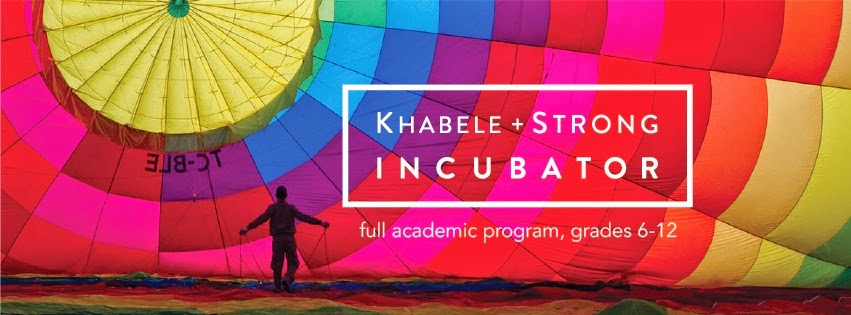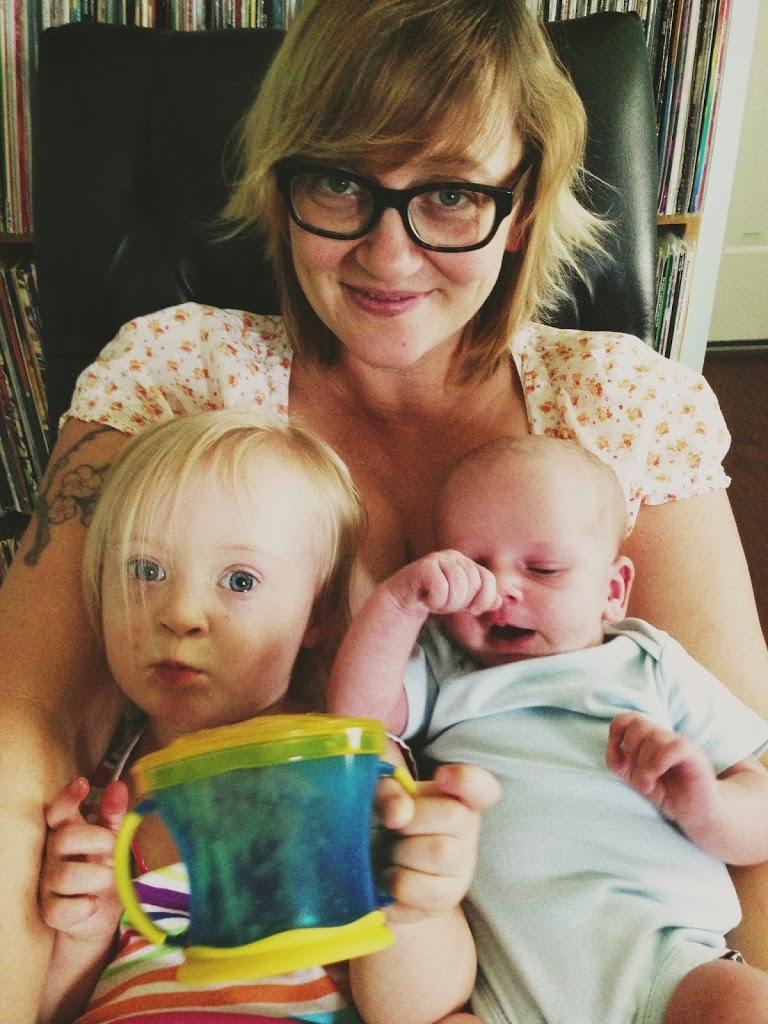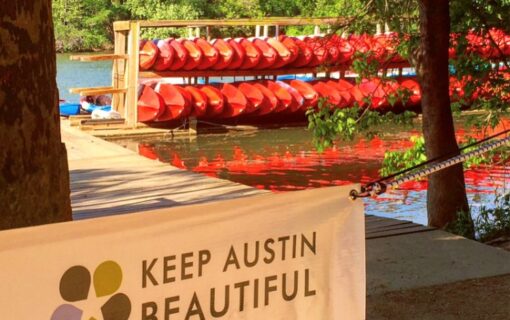Look out, world: There’s a new school in town, and it promises to be a game-changer. The Incubator, as this new school is called — full name, Khabele + Strong Incubator — is on a mission to help young people change the world through “entrepreneurial talent development.” As co-founder Michael Strong says about Incubator students, “They aren’t just waiting for their lives to start, but are starting their own lives right away.”
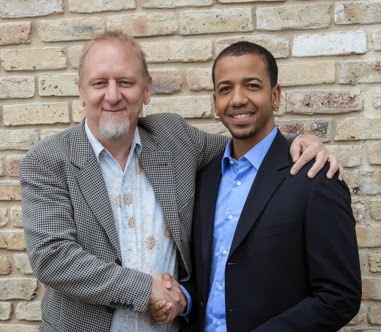 |
| Incubator co-founders Michael Strong and Khotso Khabele |
Strong, an education pioneer who gives TEDx talks on topics like Socratic practice and creating conscious culture through educational innovation, founded the Incubator with well-known and beloved Khabele School founder Khotso Khabele. The Incubator, which will serve sixth- through twelfth-graders beginning in August 2014, is currently housed just south of the river in the same complex as macrobiotic restaurant Casa de Luz and Integrity Academy (another one to watch in the Austin alternative-education community). Incidentally, Strong prefers the term “innovative education” to “alternative education,” and according to the Incubator’s website, the school is “a new kind of institution that will make school obsolete.”
When I read that, my first thought was, Sign me up! followed by, Too bad I’m not in middle or high school anymore… Though my children aren’t yet anywhere near middle-school age, I contacted Michael Strong and had the pleasure of speaking with him about education, entrepreneurship, “amazingness,” seven billion geniuses, and the Incubator.
If you poke around the Incubator’s website, you’ll quickly realize the school’s educational style is distinctly constructivist, community- and discussion-based, and very much student-led in the sense that students build knowledge both independently and collaboratively through projects, conversation and debate. In fact, Strong reports that many students are coming to the Incubator this fall with plans already in mind for specific projects they want to pursue.
The kind of students who will thrive at the Incubator, says Strong, are “students with self-direction, with their own interests. While it’s not required for admission, we have had students come in with inventions they want to create, or novels they want to write. Conventional schooling is getting in their way. We can provide them an extraordinary opportunity to develop their interests and talents — to develop their passion.”
Though the Incubator is most definitely not a conventional school, it will still incorporate college readiness and admission as one focus of its curriculum. Strong points out that, along with great SAT scores and AP courses, an essential component of a strong college application is “being amazing — young students discovering what they love. At the Incubator, we coach and mentor students so that, ideally, they become world-class in whatever domain they feel passionate about.”
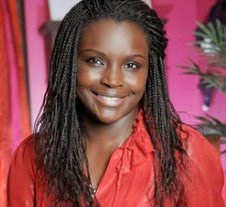 |
| Magatte Wade, Entrepreneur-in-Residence at the Incubator |
Though many schools purport to model project-based learning, Strong points out that most of those projects are made up by teachers. At the Incubator, teachers are “plugging students into real-world projects that actually have value,” says Strong, “which makes them more meaningful. We are about exposing students to lots of real-world projects, and building relationships between students and those projects’ creators.” Strong cites several examples of real-world projects that Incubator students could get involved with and learn from, including a tea company in Rwanda that is helping women get jobs; an entrepreneur in Guatemala who has developed a bike-pedal-powered clothes-washing system to help women living in rural villages without electricity; or the aquaponics industry right here in Austin (using fish and their waste to fertilize and grow plants and vegetables in a self-sustaining water system). Incubator students will pursue diverse, concrete, real-world projects, and in doing so, will discover what is possible.
It is apparent that the Incubator’s founders view children as intelligent, valuable and valued contributors to the community. Strong says, “We don’t give enough responsibility to our young people, and I think that is a real problem with our culture. In other communities around the world, kids as young as 13 years old take on real responsibilities in their communities.” At the Incubator, children as young as 11 years old will have the opportunity to view and position themselves as important thinkers, doers and innovators. These are the kids who will effect positive social, cultural and environmental change in this community and beyond.
In Strong’s vision, this happens most effectively through entrepreneurship. At the Incubator, he says, “we want to prep students for an entrepreneurial life. I spent 15 years in K–12 education. Then I met John Mackey, who had created Whole Foods. We had both seen the power of entrepreneurial solutions to the world’s problems. Young people, increasingly, people in their twenties, are creating startups that are mission-driven with the intention of solving some kind of social problem. This is the wave of the future, so we want to get students started on this now. And really, right now, Austin is the best place to do this. Parents here just get this.”
Eventually, Khabele believes, people will collectively shift education toward the kind of model he and Strong are building with the Incubator, “but someone has to pioneer it,” he points out. “We aim to play a significant role in innovating this new model.”
One aspect of Michael Strong’s educational beliefs resonated with me as the mom of a kid with special needs. After noticing on the Incubator website that the school is open to students who have “the desire and capacity to be responsible members of our community,” I asked Strong who determines that capacity, and more broadly, what the Incubator’s policy is on admitting students with special needs, whether they are in need of physical, academic or other accommodations.
Strong’s response deserves its own paragraph:
“I’ve created many small alternative schools, which have tended to attract lots of kids with various types of learning styles. Accommodating students with diverse abilities and learning styles? No problem. I created a Montessori middle school where one 8th-grade student with significant cognitive issues was doing 3rd-grade math, and another was doing very advanced math, and they were coexisting in the same class with no problem. Specialized, expensive schools often recommended my middle school because it provided a far more individualized environment. The truth is, often in schools there is resistance among teachers about accommodating kids who learn differently from the norm. It’s unfortunate, but it’s true. But I like to talk about a world with ‘seven billion geniuses.’ A child who doesn’t fit well within a regular school? As long as they are focused and well-behaved, this is not a problem at all. What are they amazing at? Let’s discover it.”
Strong is definitely speaking my language. I’ll be excited to see what the school is doing a decade from now when my own little geniuses are in middle school.
As for the present, enrollment is going on now at the Incubator. If you are interested in enrolling your middle- or high-school-aged child to begin attending the Incubator in the fall, or if you want to take a tour of the school, contact Michael Strong or Khotso Khabele (contact information below). You can also fill out an application form online — there’s one for parents and one for students.
Be sure to mention Free Fun in Austin in order to have your $100 application fee waived.
Also note that the Incubator will be offering free talks on education for parents this summer, the first happening on July 8
; check out the school’s Facebook page for more information and updates.Contact the Incubator:
1701 Toomey Road
Austin, TX 78704
Ph. 512-910-5331
Email Michael Strong: [email protected]
Email Khotso Khabele: [email protected]
Catherine A. Morris is a writer as well as a once-and-future teacher, musician, jogger and triathlete living in southwest Austin, Texas. Yes, most of her former passions and pastimes have given way, at least for now, to her current, main passion and pastime: caring for her two kids, toddler Pearl and baby Zephyr. Pearl and Zeph make Catherine and her husband laugh (and cry) on a daily basis, and give Catherine plenty of good reasons to seek out free, fun activities to keep everyone alive, engaged and happy from one moment to the next.



